The Qi Culture Dictionary, the first large-scale reference book on Qi culture in China, has been published recently. On the morning of January 9th, SDUT, Shandong People’s Publishing House and the Publicity Department of the Zibo Municipal Party Committee jointly hosted a symposium on the publication of TheQi Culture Dictionary at the West Conference Room on the second floor of Xingyuan Hotel. Focusing on the significance of the book, the symposium deeply discussed how to further deepen the research and interpretation of Qi culture as well as how to promote solidly the “creative transformation and innovative development” of excellent traditional Chinese culture.
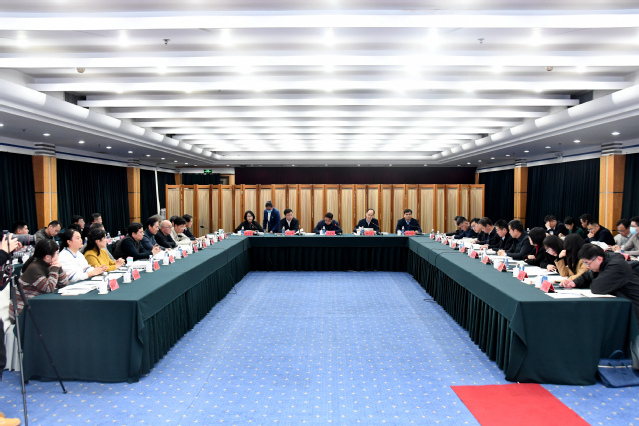
Leaders present at the symposium were WANG Zhimin (former vice chairman of the Shandong Committee of the Chinese People’s Political Consultative Conference, honorary dean of the Qi Culture Research Institute of SDUT, and editor in chief of TheQi Culture Dictionary), WEI Changmin (deputy minister of the Publicity Department of the Shandong Provincial Party Committee and level I inspector), YANG Xudong (deputy secretary of the Zibo Municipal Party Committee and secretary of the Political and Law Committee), XU Mingbo (division chief of the Second Theory Research Division of the Publicity Department of the Shandong Provincial Party Committee and director of Shandong Provincial Office for Social Sciences), WANG Haitao (deputy editor in chief of Shandong People’s Publishing House), HU Xingyu, (secretary of the Party Committee of SDUT), LI Yuxia (president of SDUT), and SU Shoubo (standing committee member of the Party Committee of SDUT and vice president). Personnel from Shandong People’s Publishing House, the Publicity Department of the Zibo Municipal Party Committee, Zibo Bureau of Education, Zibo Municipal Bureau of Culture and Tourism, Zibo Municipal Qi Culture Research Institute, and Zibo Municipal Library attended the symposium, as well as leaders from the Publicity Departments of various districts and counties in Zibo City, department heads of SDUT, and all compilers of the Qi Culture Dictionary. LI Yuxia presided over the symposium.
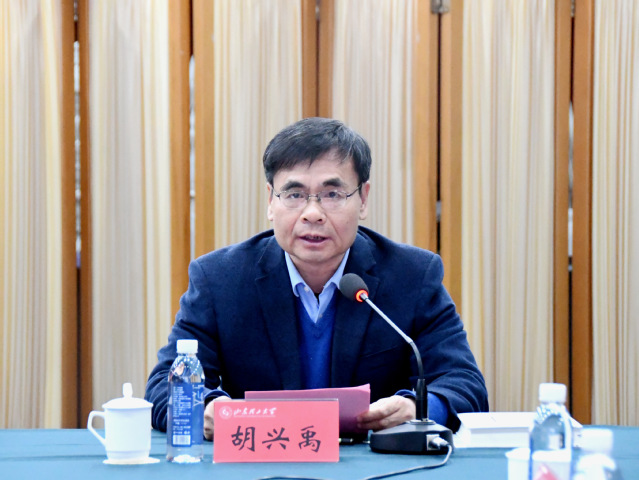
HU Xingyu (secretary of the Party Committee of SDUT) presents at the symposium on the publication of the Qi Culture Dictionary and delivered a speech on behalf of SDUT
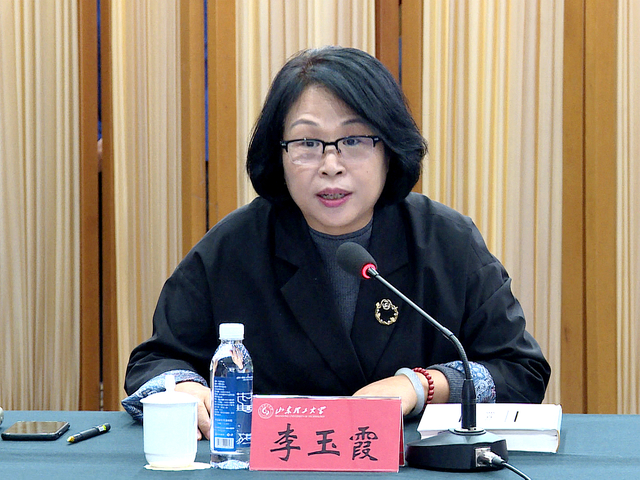
President LI Yuxia presides over the symposium on the publication of the Qi Culture Dictionary
HU Xingyu, on behalf of SDUT, extended congratulations to the publication of the Qi Culture Dictionary. He pointed out that the publication of the Qi Culture Dictionary was an important achievement in strengthening the research of Qi culture, promoting the creative transformation and innovative development of fine traditional Chinese culture. It is also a significant measure in implementing the provincial government’s call for creating the new benchmark of “creative transformation and innovative development” to build fine traditional Chinese culture in Shandong Province and was of great significance for vigorously promoting the construction of a culturally strong province. SDUT would take the publication of TheQi Culture Dictionary as an opportunity to further strengthen the research, interpretation and promotion of Qi culture, and create a new benchmark for the “creative transformation and innovative development” of excellent traditional Chinese culture.
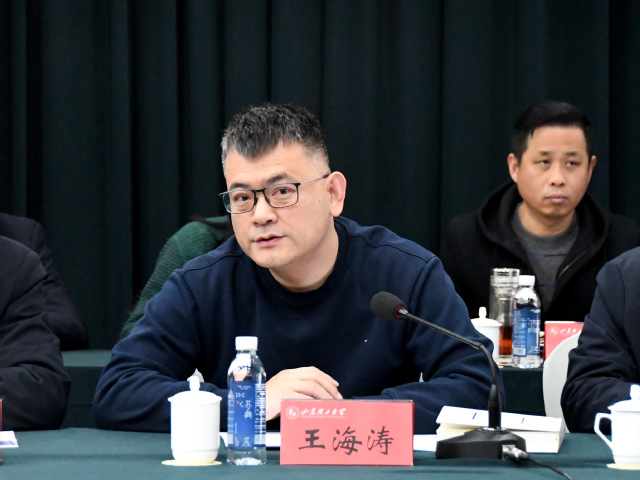
WANG Haitao said in his speech that TheQi Culture Dictionary, as an innovative and high-quality academic work, would work as a unique and independent driving force in promoting the research of Qi culture and communication of fine traditional Chinese culture.
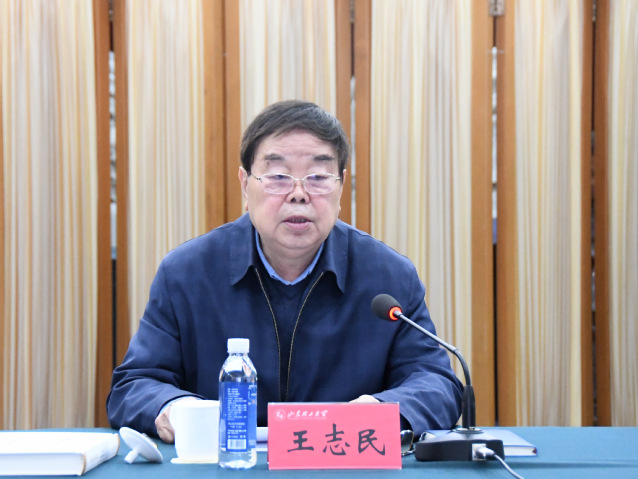
WANG Zhimin introduced the of compiling TheQi Culture Dictionary, project initiation, team composition, content planning, and writing process, as well as several insights from leading the compilation. He also put forward suggestions on how to increase the publicity of the book and play its due role.
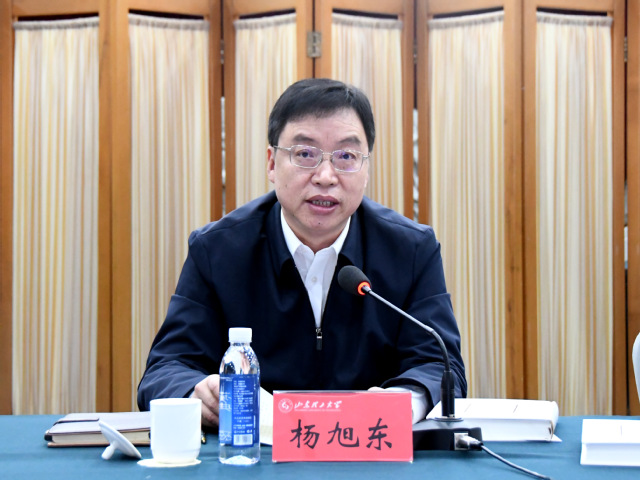
YANG Xudong stated that Zibo was expected to take the publication of TheQi Culture Dictionary as an opportunity to further explore the contemporary value, social value, and economic value of Qi culture, and contribute more Zibo strength and inject more Qi culture momentum to build a modern civilization highland of the Chinese nation.
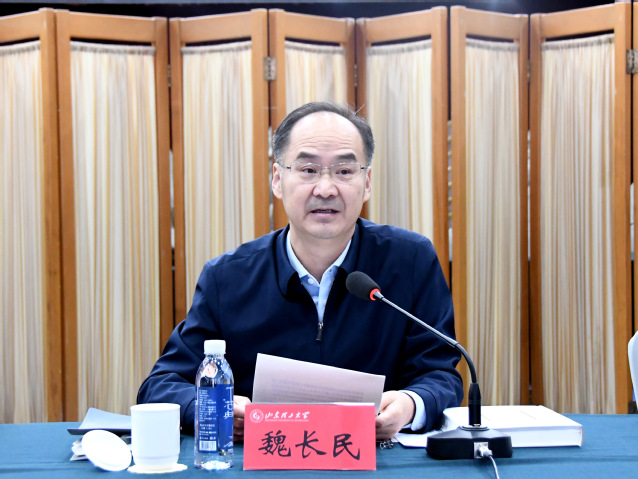
WEI Changmin hoped that experts would continue to provide suggestions and contribute wisdom to the “creative transformation and innovative development” of Shandong cultural work, and jointly promote Shandong to take the lead and open up new opportunities in building a modern civilization highland for the Chinese nation.
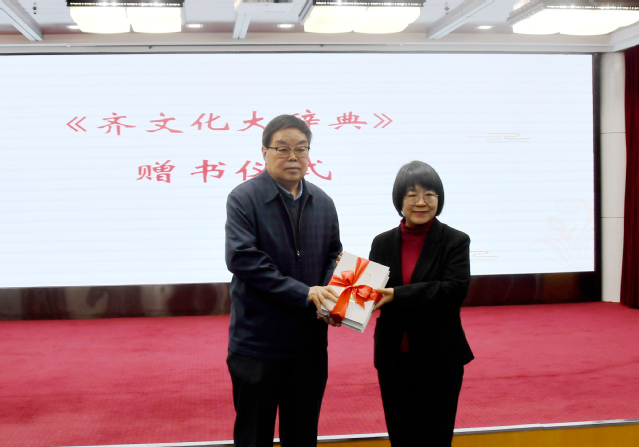
WANG Zhimin donating TheQi Culture Dictionary to Zibo Library.
During the seminar, Professor FANG Hui (the Yangtze River Scholar, dean of the Institute of Cultural Heritage, Shandong University), Professor ZHAN Huajun from SDUT, ZHOU Jingyuan (member of the Leading Party Members Group and deputy director of Zibo Bureau of Education), LIANG Rongjiang (senior researcher of Zibo Municipal Bureau of Culture and Tourism), and BI Xuefeng (dean of the Zibo Municipal Qi Culture Research Institute) delivered speeches respectively on the compilation, publication, promotion and distribution of The Qi Culture Dictionary, as well as further academic research on Qi culture.
TheQi Culture Dictionary is a major research project of Shandong Province Social Science Plan, with WANG Zhimin as the editor in chief and published by Shandong People’s Publishing House. As the first large-scale reference book in China that comprehensively reflects Qi culture, it includes a total of 1,580 entries related to “Qi culture” with more than 620,000 words. It is divided into seven parts, including classical works, institutional customs, ideological theories, place names and ancient countries, cultural relics, event stories, and idioms and allusions, which systematically presents the historical origins, humanistic characteristics, and contemporary value of Qi culture.
